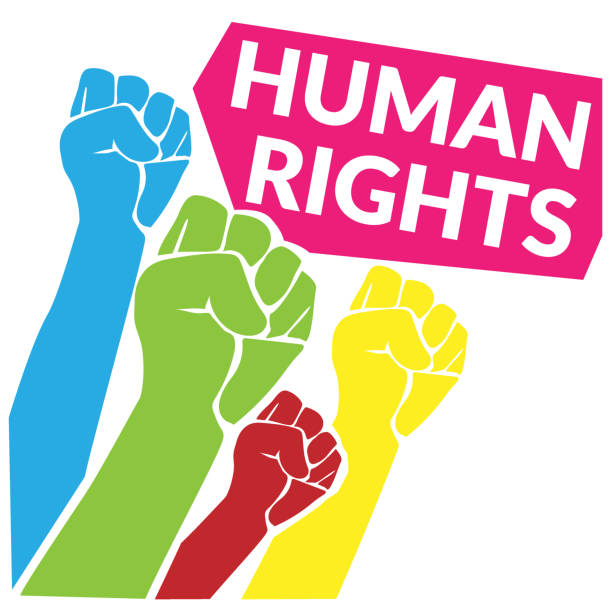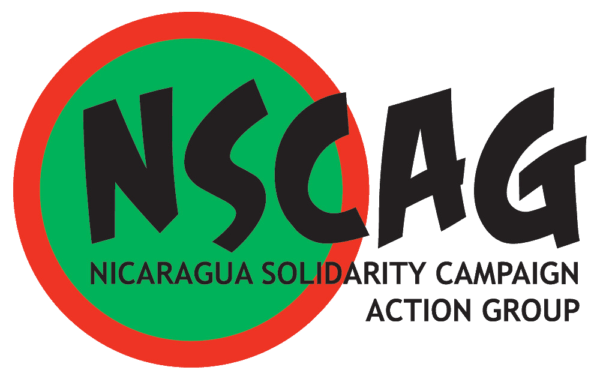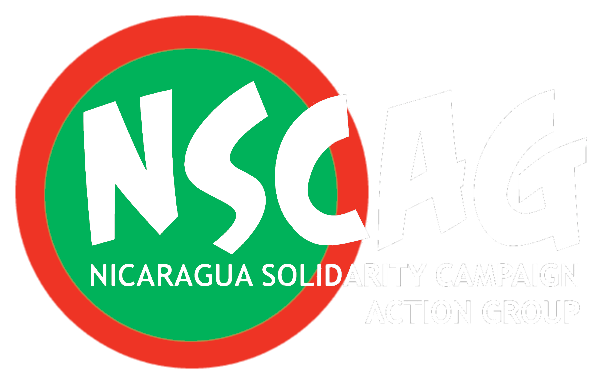Nicaragua Solidarity Campaign Action Group
31 July 2023
The human rights of the majority

NSC chair James Poke interviews human rights lawyer Dan Kovalik about the 1948 Universal Declaration of Human Rights, why the spirit of the declaration became so fragmented during the Cold War, and what this means today for countries like Nicaragua.
JP: Can I start by asking you to describe the background to the international treaties under the auspices of the Universal Declaration of Human Rights, and the distinction between civil and political rights on the one hand and economic, social and cultural rights on the other?
DK: It goes back to the UN Charter, which was agreed to after World War II. Directly out of that came the first human rights document, the Universal Declaration of Human Rights. That is not in itself legally binding, but it was originally intended as a single binding covenant that would regulate both civil and political rights and economic rights.
But because of the Cold War split between the East and the West, there ended up being two different covenants. One is the International Covenant on Civil and Political Rights, which is the covenant which protects rights such as the right to be free from government repression and regulation. It allows for the right to free speech, freedom of religion, the right to organise and protest and so on.
The second is the International Covenant on Economic, Social and Cultural Rights, which calls on governments to provide things like social security, food, water, and welfare rights. Those are the two different sets of rights as encapsulated in those two different covenants.
But the West in general and the US in particular value the first set of rights more or less to the exclusion of the second. In fact the US never even ratified the International Covenant on Economic, Social and Cultural Rights, while it is a signatory to the International Covenant on Civil and Political Rights. And so when the US for example, and again this is also true for Great Britain, evaluates other countries’ human rights, they generally don’t look at the economic rights. When they look at Cuba, for example, or Nicaragua, what they focus on again are free speech, freedom of assembly, freedom of religion, democratic rights and freedoms, and they really don’t care whether those countries are good at educating their people or providing healthcare.
JP: What is the reason for this different emphasis, given that most other countries have in fact ratified the Covenant on Economic, Social and Cultural Rights?
DK: Well, quite simply, because these are capitalist countries, whose own constitutions tend to provide for the first set of rights, the civil and political rights, but not the other kind. Some Western countries do: Nordic countries, for example, tend to be better at that, but most don’t, and particularly the US is very committed to not providing those rights.
The mantra of the US is essentially to claim that economic, social and cultural rights, which are seen as socialist, will inevitably infringe on civil and political rights.
For example in the US we don’t have national healthcare – we’re now the only industrialised country in the world that doesn’t have it. The claim is that it’s a socialist benefit, meaning that you’re going to lose out on certain rights, you’re not going to be able to choose your doctor and so on. Essentially, it’s an anti-socialist kind of perspective and bias, and they actually see those rights as bad. They think that you can only protect one set of rights and they want to protect, or at least claim to protect, the civil and political rights.
JP: How is this relevant to human rights in Nicaragua and to what degree is Nicaragua putting an emphasis on economic, social and cultural rights?
DK: Nicaragua, I would argue, is good at protecting both sets of rights. Nicaragua is very good at protecting economic rights. It’s done a great job providing free healthcare. The Sandinista government, since being re-elected in 2006, has built 24 state of the art hospitals to date, spread throughout the country. And they have built a lot of infrastructure, and provided free education and free housing. Nicaragua is now almost 100% food sovereign, meaning almost all the food they eat they grow themselves.
So they’re very good at these rights, but again I would argue that they’re good at civil and political rights too. Through the 1979 Sandinista Revolution, from the ashes of the US-backed dictatorship they overthrew, which everyone agrees was brutal and not democratic, the current Sandinista government has built a democracy in Nicaragua.
They’ve done very well with women’s rights in particular: Nicaragua is now ranked number 7 in the world for gender equality, which is incredible, much higher, by the way, than the US and UK.
… the US criticises Nicaragua for alleged shortcomings in civil and political rights, ignoring what they do in the economic sphere.
JP: Moving on to the regular reporting in Western mainstream media of supposed abuses of civil and political rights by the Sandinista government, what is the reality?
A focus has been the fact that the government arrested a number of people after the 2018 coup attempt, in which over several months, violent groups held the country hostage. They set up ‘tranques’, in other words barricades or roadblocks, throughout major cities, by which they really dismantled and destroyed the economy during that period and for some time to come. They harassed people at these tranques, they beat people up, they raped people, killed people, destroyed all sorts of public property and buildings and memorials, wreaking havoc throughout the country. Shockingly over 200 people died during those three months, including 22 police officers.
Not shockingly, the government arrested people responsible for this mayhem, including some of the intellectual authors of those crimes, which did include some politically prominent people, but they were not arrested for their political beliefs or their party affiliations, they were arrested because they were involved in this violent mayhem.
Now I compare this to the 6 January, 2021 insurrection in the United States, before the inauguration of the new president, Joe Biden, on Capitol Hill, in which hundreds of people entered the Capitol building and also caused mayhem, including a lot of property damage and confrontations with police and security officials. Several people died as a result, mostly after the fact, but one or two people actually died as a result of violent confrontation during that period, which was a period of several hours on one day.
The US Congress has had hearings about this. People, many people, called for the intellectual “authors” of this interaction to be held to account, including Donald Trump, the former president himself, because they claim he knew about it, that he instigated it through his words, encouraged people to engage in this conduct, and yet the damage done in those several hours and both the property damage and damage to life and limb was minuscule compared to what happened in Nicaragua in the spring and summer of 2018.
A number of people were arrested and given fairly long sentences in the US, including some people who just entered the Capitol building and don’t seem to have done anything, didn’t hurt anyone. The Sandinista government did hold people to account and there were a couple of hundred people that they arrested and tried. But they then gave amnesty to them, on condition that they stop instigating violent rebellion against the government. When some continued to do so, they were re-arrested and convicted again. More recently these people were let out of jail, put on a plane and sent to the United States.
This is considered to be major human rights violations by the Sandinista government. For those of us who see it differently, we see that the government was protecting the security not only of the government but of the people of Nicaragua. I think by and large, these measures were popular amongst the people, who do not want this type of mayhem, which of course the US supported and help to incite.
People do not want this to happen again, and if governments have one duty to the people above all, it’s to secure their safety, to secure people’s right to life, which is a right embodied in the Universal Declaration of Human Rights and in the International Covenant on Civil and Political Rights, and their freedom, mobility, and other civil and political rights which were infringed upon by these insurrectionists in 2018.
JP: It’s hard to see how letting people out of prison and letting them go to another country could be regarded as being an infringement of human rights.
DK: Yes, especially when they let them go to the United States, given that most of these people were on the US payroll. So it’s just incredible and shows a complete lack of real empathy with what Nicaragua went through in 2018 as compared to the much smaller insurrection on January 6, 2021 in the US.
If people saw Nicaragua through the lens of what happened on 6 January [in the US], they’d be much more sympathetic than they are to how the Nicaragua government has responded.
JP: And presumably those people who were arrested or convicted of actions to do with the insurrection on the Capitol have not been offered amnesty?
No, and some have been given stiff sentences just for having been there, so given the difference in treatment, it is pretty amazing how we view the situation. By the way at the moment a number of polls have come out showing that Nicaragua is one of the most stable, safe and crime-free areas in the region. It’s not a coincidence that they are now after the people that were causing the mayhem have been either put in jail or sent away. So the proof is in the pudding.
JP: Indeed it seems like a win-win for everybody and no doubt it’s a very popular move in Nicaragua. One aspect which is considered to be particularly controversial is the issue of removing nationality from these people. Do the covenants on human rights have anything to say about that?
Well the covenants definitely say that everyone has a right to a nationality. But these folks are going to have that, they’re going to become nationals of other countries, either the US or in some cases Chile or Spain, and so on. It doesn’t specifically say anything about one’s right to continue having a certain nationality, although there is a right of return to people’s countries of origin.
But all that can be conditional on whether people commit crimes. None of this is a license to steal. People are frequently sent into exile for committing high crimes, especially treason. In fact, in many countries, the type of treason that these people committed could be punished by death, and often is.
By the way, the covenants are not anti-death penalty per se: they contain certain conditions, but they don’t outlaw the death penalty. Of course, one of the first things that the Sandinistas did when they overthrew Somoza was to suspend the death penalty, and none of the arrested people have been killed. On the contrary, they’ve been freed, freed to other countries. To me that does not seem a serious violation of their rights, given what they did in Nicaragua.
JP: To be clear, all the people who have been released to the United States were convicted in Nicaragua and that was all through a due process of law in Nicaragua. They were all tried by criminal courts in Nicaragua and given appropriate sentences.
DK: That’s correct. So again that is all very much in keeping with the international human rights covenants.
JP: Ok I think that covers all the questions I have. Do you have any additional final comments?
DK: Just that I think that when people look at countries like Nicaragua, first of all they need to understand the history.
…they need to understand that the US in particular has done everything to promote dictatorship and undermine democracy, certainly in the last 150 years, that it is not a force for democracy, and that claims criticising the Sandinistas for shortcomings in democracy are hypocritical.
And also people need to see what the Sandinistas have done: made Nicaragua a much more democratic country, a country that guarantees these social and economic rights for the vast majority, those who are impoverished, and it is a mostly poor country, and those are the people who’ve benefited most from the Revolution. They continue to benefit from the Revolution and I think that’s what I would encourage people to focus on.
An edited version of this article was first published in Nicaragua Now, June 2023

